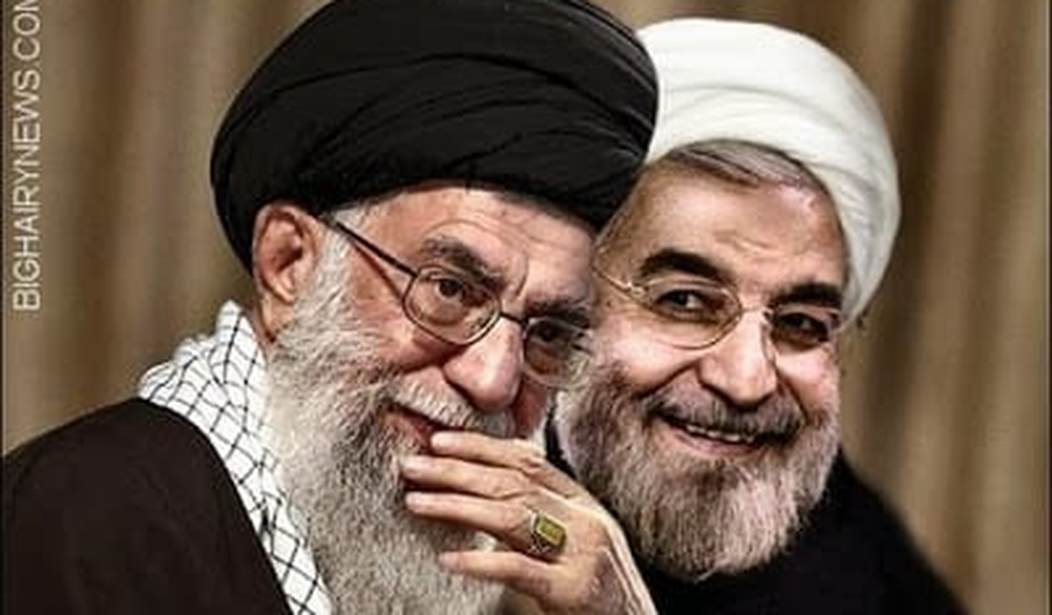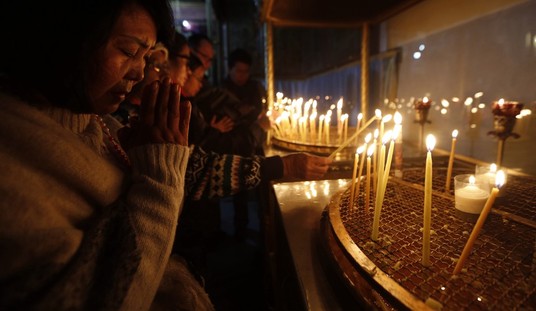Iran has quickly wrested the much-touted nuclear talks out of Washington’s hands and set their own agenda for the process as the administration sent the signal that it wasn’t sinking too much effort into what President Obama has branded a true shot at defusing the crisis.
The five permanent members of the UN Security Council and Germany sat down with the Islamic Republic in Geneva, but Secretary of State John Kerry, who made a big deal of the fresh engagement at last month’s General Assembly, didn’t show.
Kerry was in Washington meeting with USAID Administrator Raj Shah, sitting down with his Jordanian counterpart Nasser Judeh, and hosting a lunch with Henry Kissinger and George Schultz for the U.S.-China Track II Dialogue delegations.
Instead, the State Department sent Under Secretary for Political Affairs Wendy Sherman to the P5+1 talks. The Iranians were reportedly miffed that their foreign minister, Mohammad Javad Zarif, showed up despite having a sore back yet Kerry didn’t make the trip. Zarif refused to sit down with Sherman, so a bilateral meeting took place between Sherman and Zarif’s deputy.
“I think it’s appropriate for foreign ministers to come together when it makes sense,” a senior administration official said Monday. “…We’ve passed the bilateral Rubicon. The meeting has happened. Whether we have a bilateral here or not, I certainly hope we can continue those discussions.”
“But as I’ve said to you any number of times, it’s less the modality than the results that count. And so we’re looking for results and encourage Iran to have bilaterals with all the members of the P5+1, including the United States. But we’re past that Rubicon, not only by the Secretary of State having a bilateral with Foreign Minister Zarif, but the President of the United States having a phone conversation with President Rouhani,” the official added.
Without top-level representation from the U.S. at the meeting, Iran whipped out a PowerPoint presentation today detailing its plan for supposedly reining in its already rapidly advanced nuclear program.
That included continued uranium enrichment for what Iran says is a nuclear energy, not weapons, program observed by the International Atomic Energy Agency, plus a repeal of U.S. and international sanctions.
“The Group 5+1 member states welcomed the generalities of Iran’s plan,” Iranian Deputy Foreign Minister Seyed Abbas Araqchi announced after the meeting. “Unlike the previous meetings that every side entered the negotiations to attain its own goals, this time we will try to design a common goal and then move towards it. The negotiations were held in a highly positive atmosphere and the two sides were serious when speaking of their issues.”
Zarif presented the PowerPoint in the morning but left the “technical” afternoon meetings up to Araqchi.
Araqchi said the exact details of Iran’s three-stage proposal were “confidential” and would remain so through negotiations, something the U.S. has agreed to.
“Mr. Zarif had a PowerPoint presentation of the plan in details, the generalities of the plan were discussed in the morning session and the details will be studied by political directors in the afternoon,” Araqchi added.
Russian Foreign Minister Sergei Lavrov also said the P5+1 should be required to declare that they’re not seeking regime change in Iran, according to Fars news agency.
White House press secretary Jay Carney said today that he didn’t even consider that Iran had come out swinging with an offer.
“I think that there was a P5+1 meeting in Geneva, the first day of it, and the Iranian delegation made a presentation and the P5+1 and Iran spent the day discussing the presentation. We’re not going to negotiate this in public or go into the details of what was in their proposal. We certainly want to make clear that no one — despite the positive signs that we’ve seen — no one should expect a breakthrough overnight,” Carney said.
“These are very complicated issues — in some cases, very technical issues. And as the president has said, the mistrust here is very deep. But we hope for progress in Geneva. And although we appreciate the recent change in tone from the Iranian government on this issue, we will be looking for specific steps that address core issues, such as the pace and scope of its enrichment program, the transparency of its overall nuclear program and its stockpiles of enrichment,” Carney continued.
State Department spokeswoman Jen Psaki said she wouldn’t characterize the meeting other than to say “our team on the ground had very detailed discussions.”
“I don’t think we’d characterize it as a breakthrough at this stage,” Psaki said, contradicting the Iranians’ characterization of their PowerPoint presentation.
Before the meetings even began, Congress was warning the Obama administration to proceed with caution in its goal of a diplomatic solution with Iran.
“Not long ago, we counted Iranian centrifuges in the hundreds. Today, that number is in the several thousands, with faster and more powerful centrifuges being installed,” House Foreign Affairs Committee Chairman Ed Royce (R-Calif.) wrote to President Obama on Monday.
“It is questionable that any level of inspection and verification measures could adequately assure the world that Iran is not pursuing a nuclear weapons program,” Royce added. “As a respected former weapons inspector has written, ‘The blunt truth is that weapons inspections simply cannot prevent a government in charge of a large country from developing nuclear weapons, when that government has decided to breach its obligation not to.’ Indeed, a top State Department negotiator told Congress this month that, ‘deception is part of [Iran’s] DNA.'”
Sens. Robert Menendez (D-N.J.), Lindsey Graham (R-S.C.), Chuck Schumer (D-N.Y.), Roy Blunt (D-Mo.), Patty Murray (R-Wash.), John McCain (R-Ariz.), Barbara A. Mikulski (D-Md.), Kelly Ayotte (R-N.H.), Bob Casey (D-Pa.), and Chris Coons (D-Del.) also sent Obama a letter reiterating four elements detailed by more than three-fourths of the Senate in August: “(1) an explicit and continuing message that we will not allow Iran to acquire a nuclear weapons capability, (2) a sincere demonstration of openness to negotiations by Iran, (3) the maintenance and toughening of sanctions, and (4) a convincing threat of the use of force.”
“A nuclear weapons capable Iran threatens regional stability and international security and directly threatens U.S. national security interests. As we previously cautioned, Iran has historically used negotiations to affect progress on its nuclear weapons program. We must continue to realistically evaluate Iranian intentions, and we reiterate that the centrifuges cannot be allowed to continue spinning,” the senators wrote. “We reject Iranian statements that Iran should be able to continue enrichment in its own territory.”
“We remind you that the U.S. Department of State has characterized Iran as ‘the most active state sponsor of terrorism’ and to be sure, verifiable dismantlement of the Iranian nuclear weapons program will not resolve the Iranian government’s deplorable abuse of basic human rights, denial of basic civil freedoms, or its ongoing activities that seek to destabilize the region.”
At a Yom Kippur War memorial ceremony today, Israeli Prime Minister Benjamin Netanyahu said the Jewish state had learned to “not to underestimate the enemy, not to ignore the dangers and not to give up on preemptive strikes.”
“Peace is achieved when hostile countries around us understand that Israel is strong and refuses to be uprooted,” Netanyahu said.









Join the conversation as a VIP Member